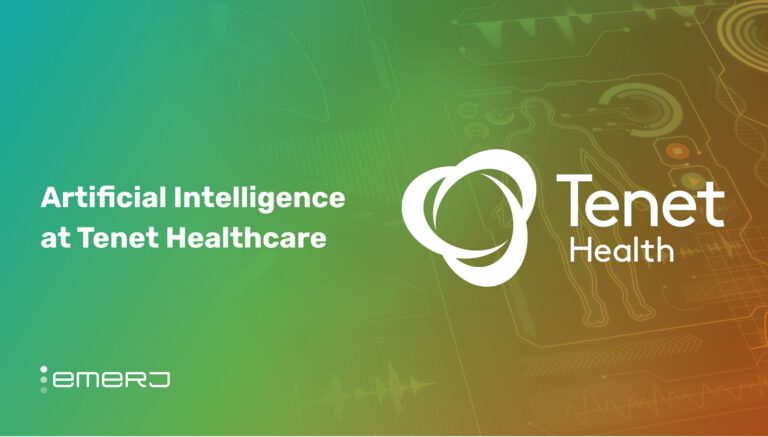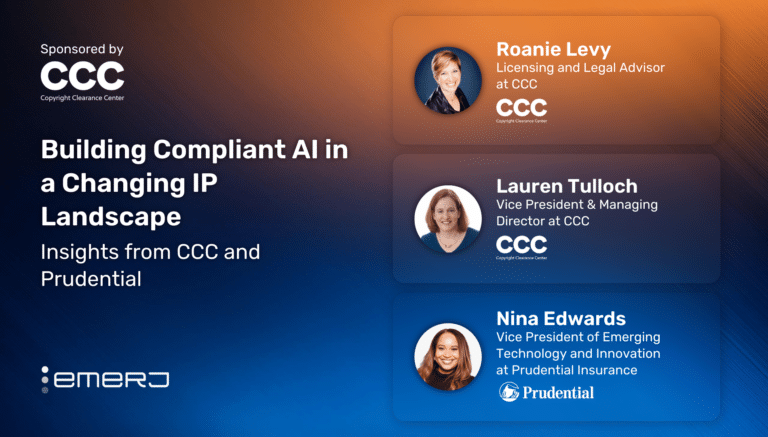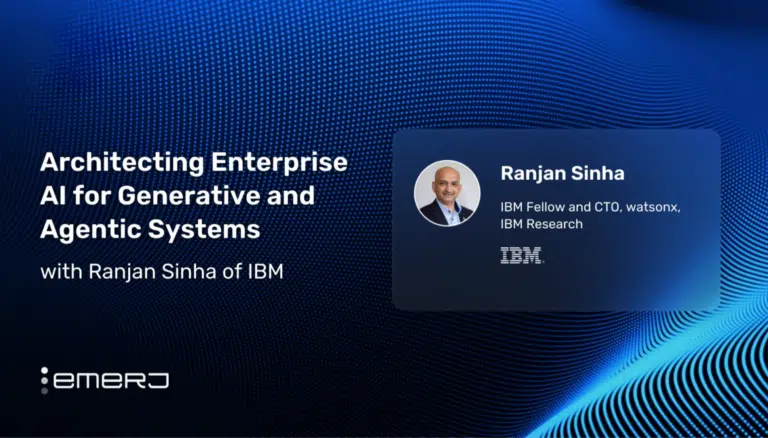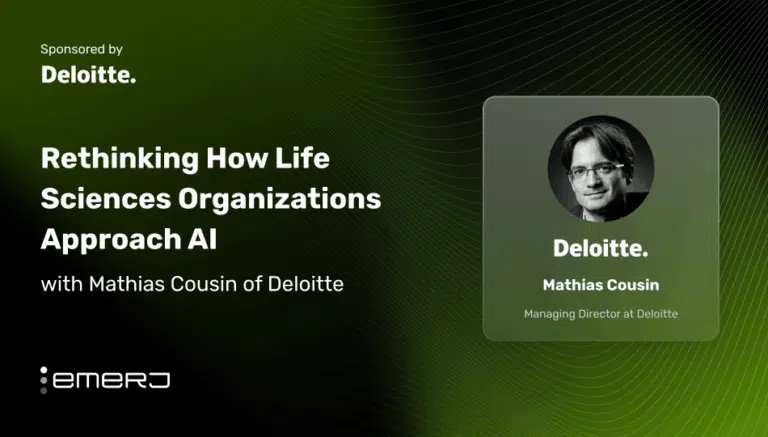This interview analysis is sponsored by Deloitte and was written, edited, and published in alignment with our Emerj sponsored content guidelines. Learn more about our thought leadership and content creation services on our Emerj Media Services page.
AI is having a transforming impact on private equity and principal investment spaces by enhancing deal sourcing, deal insights, process management, and exit automation management. Private equity firms leverage AI to process vast amounts of data quickly and accurately, leading to better investment outcomes and improved performance.
Generative AI can reduce the time spent in deal sourcing by private equity firms by 50-60% in the case of deal sourcing, according to recent reporting from Accenture. That reporting also mentions that generative AI could provide a 6-7% productivity gain and a 3-4% percent revenue uplift in those same firms.
Emerj CEO and Head of Research Daniel Faggella recently spoke with Bhuvanesh Abrol, US Private Equity Consulting Leader and M&A Services Private Equity Consulting Leader at Deloitte, on the ‘AI in Business’ podcast to discuss the potential impact of AI on various aspects of private equity operations, including deal-making, portfolio management, and decision-making.
The following analysis examines two key insights from their conversation:
- Utilize AI-driven bots for expedited diligence: Improving deal-making efficiency by incorporating AI-driven conversational agents to consolidate data, provide ratings, and quickly assess potential pitfalls in the diligence process.
- Focusing AI adoption on top-line growth and outcome-driven impact: Embracing AI capabilities beyond cost-efficiency and aiming for broader outcome-driven impact by gaining insights into customer preferences, profit margins, pricing, and overall value impact, especially in portfolio management.
Listen to the full episode below:
Guest: Bhuvanesh Abrol, US Private Equity Consulting Leader and M&A Services Private Equity Consulting Leader at Deloitte
Expertise: M&A Target Screening, Commercial Due Diligence, Operational/Carve-out/Stand-up and Synergy assessments for Private Equity and Strategic Buyers
Brief Recognition: Bhuvy leads Deloitte’s PE Consulting practice and Deloitte Consulting’s M&A and Restructuring PE Practice in the US. He holds a BA in Economics (cum laude) from Lawrence University, a BS in Electrical Engineering (Magna Cum Laude) from Rensselaer Polytechnic Institute, and an MBA in Strategy and Entrepreneurship from the Anderson School at UCLA.
Utilize AI-Driven Bots for Expedited Diligence
Bhuvanesh opens his podcast appearance by emphasizing the increasing influence of private equity markets and data-driven decision-making processes more broadly across the global economy. He discusses the importance of data analytics and AI at the top level of private equity firms, highlighting how insights derived from these technologies can aid in understanding market trends, company performance, and potential value-creation themes.
He then turns the discussion to the significance of both internal and external data in private equity decision-making. Bhuvanesh then highlights the need for digitization and easy accessibility of:
- Internal data: Emphasizing the importance of filtering information based on factors such as ownership, sector, and location.
- External data: Data on investment levels, exits, and valuation multiples in specific sectors become crucial at the top level for assessing performance and making informed decisions.
He also suggests the potential use of conversational AI engines (or ‘bots’) to address simple queries and interactions, indicating a future possibility of enhancing relevant communication streams within the industry. From the deal professional perspective, Bhuvanesh also mentions the potential impact of digitization and artificial intelligence on the deal-making process:
“The leaders on the deal side are, of course, working with many service providers to understand what is happening in specific sectors: What are the assets that are coming to market? What are the trends and valuations depending on different geography, depending on a specific sub-sector?
Imagine a world where a lot of this is digitized, you’ve got the data available, and you can have simple queries. So it might sound like a search, but really, there’s a lot of intelligence behind being able to get an artificial intelligence-driven ‘bot’ or person to speak that back to you. Imagine if that became available quickly.”
—Bhuvanesh Abrol, US Private Equity Consulting Leader and M&A Services Private Equity Consulting Leader at Deloitte
He describes the potential for AI-driven ‘bots’ to consolidate data, provide ratings, and inform deal professionals about their targets. Bhuvanesh specifically mentions that the power of the approach he describes lies in expediting the diligence process by identifying potential pitfalls and assessing areas of risk quickly.
The goal is to make well-informed investment decisions, and Bhuvanesh emphasizes that data coupled with AI accelerates this decision-making process by providing insights faster than traditional methods:
“There are clients that are competing for targets with other PE firms or with other corporate buyers. Imagine being able to sort out the diligence faster, which then puts the pressure on the service providers that provide diligence services – legal advisors, other advisors, consulting advisors – to improve their processes and make the path to getting to Insight much faster. AI can enable that, no question.”
—Bhuvanesh Abrol, US Private Equity Consulting Leader and M&A Services Private Equity Consulting Leader at Deloitte
Bhuvanesh then tells the Emerj executive podcast audience about the application of AI in the complex process of buying businesses, emphasizing its role in handling financial models, analyzing revenue projections, and assessing scalability. He points out that AI can significantly enhance the speed and efficiency of creating and navigating through these models.
Focusing AI Adoption on Top-Line Growth and Outcome-Driven Impact
The discussion then turns to the importance of AI in exit strategies for investments, focusing on understanding potential cost savings for businesses of a specific size and industry. Bhuvanesh emphasizes that with AI, the process can be well-informed and timely to enable swift decision-making, showcasing the potential power of leveraging technology in deal evaluations and exit planning.
He continues sharing that private equity firms are highly data-driven but face challenges with data often residing in multiple, siloed systems throughout the organization. He underscores the need for a comprehensive data strategy to leverage AI’s potential holistically through the entire organization, in comparison to previous siloed iterations. Doing so involves creating a centralized repository, ensuring data is easily digestible and mineable across the enterprise.
The AI engine can then drive new and hitherto unrealized enterprise capabilities and unlimited possibilities, such as analyzing trends or implications, from this well-organized data.
Bhuvanesh then introduces the idea that the use of AI can be both cost-driven and efficiency-driven, particularly when it comes to portfolio management. He believes there is also an additional dimension that is outcome-driven. He also suggests that, while efficiency improvements may be focused on cost reduction, the overall outcome is about imagining the impact of accelerating cost takeout.
Taking such a holistic view of outputs involves leveraging AI to gain insights into customer preferences, profit margins, and pricing. Bhuvanesh tells the podcast audience that he envisions the technology contributing to overall value impact in the portfolio. However he does add a note of caution, emphasizing that, despite discussing AI initiatives casually, the adoption of this technology takes work. He contrasts the simplicity of using AI as a search engine with the challenges of integrating these technologies into business systems and realizing its benefits.
Bhuvanesh then delves into the core concept of AI’s central role in creating business value, breaking down the AI value creation into different pillars, including efficiency, information synthesis, intelligent synthesis, and reporting. He provides examples of how AI, particularly in the context of a call center, can improve customer interactions, reduce costs, and enhance service levels.
He extends the discussion to other processes, such as billing and collections, where AI can significantly impact cost and revenue:
“There are many enablers of AI in a business. It can be from a technology standpoint or a hardware standpoint through different providers, and there are multiple levels to the stack. So, while we are focused on the outcomes, there’s a certain complexity in enabling what is needed to realize those outcomes.
Secondly, as we think about the execution of AI initiatives or the adoption of use cases, this takes embracing the fact that things will be different and an understanding that – in creating that change, it becomes a change management question as well – is going to be an improved outcome for everyone.”
–Bhuvanesh Abrol, US Private Equity Consulting Leader and M&A Services Private Equity Consulting Leader at Deloitte
He suggests a systematic approach to AI adoption, starting with a focus on the cost angle but quickly moving to the top line – improving and solving challenges throughout the business in the process. He highlights the importance of speeding up the realization of results, comparing it to the slower, manual processes of instituting changes in the past.
He also emphasizes the need for stakeholders to adapt to the pace at which change can occur within the organization in concert with AI. Such organizational alignment correspond in turn with the idea that AI-enabled solutions can deliver results faster than traditional, manual processes.



















